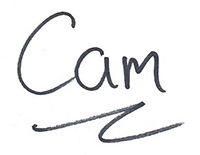
There’s a conversation I’ve been hearing with increasing volume lately—on forums, in reviews, whispered between lines in publisher catalogs: Romance is taking over science fiction.
You’ve probably noticed it too. Once the domain of hard-nosed engineers, distant stars, and sprawling battlescapes, science fiction is now rife with longing stares across alien jungles, slow-burn enemies-to-lovers in zero gravity, and yes, spice levels high enough to power a starship.
And depending on who you ask, this is either a crisis or a renaissance.
A Personal Perspective from Both Sides
Until two years ago, I maintained strict genre boundaries. Cameron Cooper—my science fiction identity—stayed firmly in the non-romantic lane. Meanwhile, as Tracy Cooper-Posey, I built complex, emotionally driven worlds steeped in romantic arcs and speculative settings. These were two different universes. Two readerships. Two languages.
Or so I thought.
Coming out publicly as the author behind both personas has given me a rare vantage point: watching, in real time, the walls between genres soften. Not dissolve—but stretch. Romance in science fiction isn’t a takeover. It’s an infusion. A graft that’s thriving.
The Original “Cozy” Genre?
Here’s a theory I’ve been mulling: Romance might be the original cozy genre.
Long before “cozy fantasy” became a hot trend—offering tea shops and quiet quests instead of apocalypses—romance was already delivering tight, intimate, and profoundly human stories. Regardless of setting or trope, romance is about connection. It thrives on nuance. And in that way, it’s deeply compatible with science fiction.
Because let’s be honest: all the sweeping space operas and dystopian rebellions mean very little if we don’t care about the people inside them. Romance doesn’t just add heat—it adds heart.
Not a Niche—A Foundation
Consider this: Romance writers are full, recognized members of the Science Fiction and Fantasy Writers Association. That’s not tokenism. That’s institutional validation. And for good reason.
Romance isn’t just tagging along with the genre boom—it’s pulling the cart. With romantasy fueling TikTok’s book scene, and sapphic space operas finding loyal followings, it’s clear that emotional arcs and personal stakes aren’t diluting science fiction—they’re giving it gravity. Something to orbit.
What Gets Dismissed Is Often What Works
It’s tempting to mock “spicy space opera” or roll eyes at yet another forbidden alien love story. But behind the covers and tropes is often tight, original world-building and thematic bravery. Romance allows readers to engage with speculative concepts through deeply personal lenses: identity, loyalty, intimacy, survival. It humanizes the abstract.
And at a time when many “pure” science fiction releases struggle to gain traction unless backed by a franchise or a streaming service, romantic SF consistently finds its readers. It connects. It sells. It stays.
A Genre Saved by Its Heart?
Is romance saving science fiction? That might be too tidy a statement—but I’ll say this:
Romance is keeping genre fiction alive. Not just SF. All of it.
And in a marketplace that’s more competitive, fragmented, and unpredictable than ever, that kind of vitality deserves not just respect—but celebration.
Especially from those of us who’ve lived on both sides of the supposed divide.
Have you tried science fiction romance yet?
If not, here’s my challenge to you: read one.
In fact, I’ll make it easy—Faring Soul, the first book in my Interspace Origins series (written as Tracy Cooper-Posey), is completely free.
If you love tight plots, sharp tech, and characters who fall in love while facing down the stars… give it a try.
You might just find there’s room in your heart—and your bookshelves—for a little gravity.
And if you do accept my challenge, feel free to email me, or come back here and leave a comment, telling me what you think.
You could really pay it forward by leaving a review where you acquire the book, too. 🙂

Latest releases:
Quiet Like Fire — Aurealis Award Finalist for Best SF Novella!
Solar Whisper
Ptolemy Lane Tales Omnibus
Just like food, a little spice adds flavor, but too much has me rushing to the frig for more milk. Too much modern SF has too much emphasis on interpersonal angst. Keep it to a minimum.
And thereby starts a whole other topic. The pros and cons of classic versus new science fiction.
I’m in the classic camp, myself. 🙂
Cam
I really like your books, have purchased all of your Ptolemy Lane books and would like to purchase more from your site but I am not in America and it’s like trying to find hen’s teeth( I am somewhat of Luddite and cranky old man) so any advice on how to get your books
First of all, *thank you!* I think you just made my day. I’m so glad you like them!
If you’re having trouble finding the books on the SRP site, then I suggest starting on this site, here; all the books are linked to SRP, and you can just click through to whatever you’re interested in.
You can start here: https://cameroncooperauthor.com/books/, and the books are sorted in various ways on that page. Browse as you wish.
Let me know if you have any other troubles.
Oh, and if you really want to avoid all headaches, then you might want to consider buying each series’ bundle: One transaction, all the books downloaded to your BookFunnel account and bob’s your uncle. You can start here, for those.
Cam.
I don’t think romance is a new addition to science fiction, but I think more scifi book with romance are being marketed with the romance as a forefront element more often now.
I remember distinctly that The Ship Who Sang by Anne McCaffrey (published in 1969) had romance between Helva and her pilot. True this wasn’t spicy and it didn’t delve too deep into longing or romantic angst, but it was definitely there. Anne McCaffrey also wrote love and romance into The Tower and the Hive series. Then in her Cattenai series, the love got spicier.
To move off of McCaffrey, I also distinctly reading Gabriel’s Ghost by Linnea Sinclair (published 2002) and Grimspace by Ann Aguirre (published 2008) which mingled more science fiction and romance.
So, the Scifi Romance trend has been steadily building. With the explosion of Romantasy becoming its own thing, I think readers of both fantasy and science fiction are now looking for a scifi equivalent are surprised (though I don’t know why) that there are a lot of types of romance and spice in science fiction.
I think you hit the nail on the head when you “all the sweeping space operas and dystopian rebellions mean very little if we don’t care about the people inside them. Romance doesn’t just add heat—it adds heart.”
And let’s not forget McCaffrey’s Pern series — I think there was at least one romance sub-plot in every book. 🙂
But yes, romance has always been there. It just wasn’t advertised.
Cam.